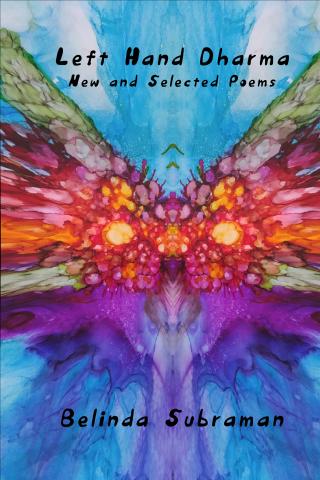Buy it on Bookshop.org or Amazon.com
Unlikely Books presents our first new and selected collection: Left Hand Dharma, by long-time Unlikely Stories author Belinda Subraman. Left Hand Dharma includes thirty-eight new poems, thirty-four poems collected from eight of her previous books, and the complete text of Late Night in the Psyche Ward, her 2001 chapbook (originally Lummox Press), and the complete text of Notes of a Human Warehouse Engineer, her 1998 chapbook (winner of the Nerve Cowboy chapbook contest). This retrospective includes a ten-page introduction by the author, laying out her history, development, and goals with her literary career, along with a bibliography spanning Belinda's work since 1983.
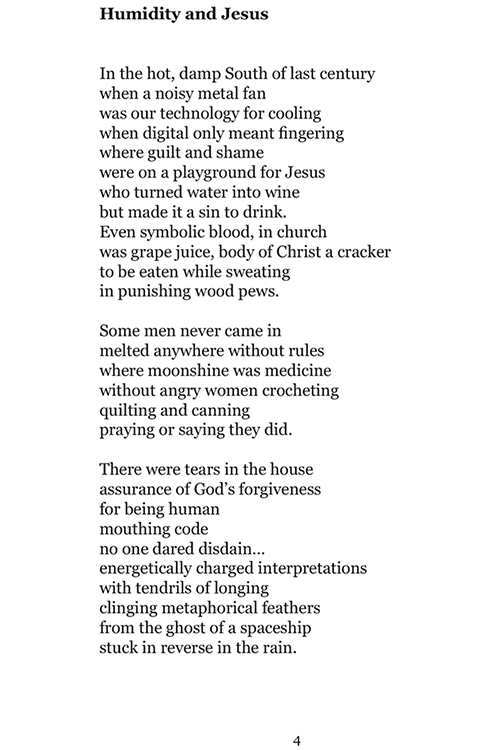
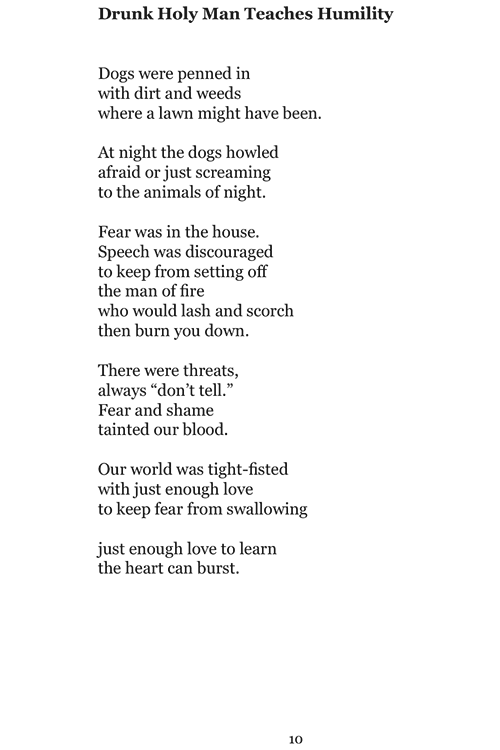
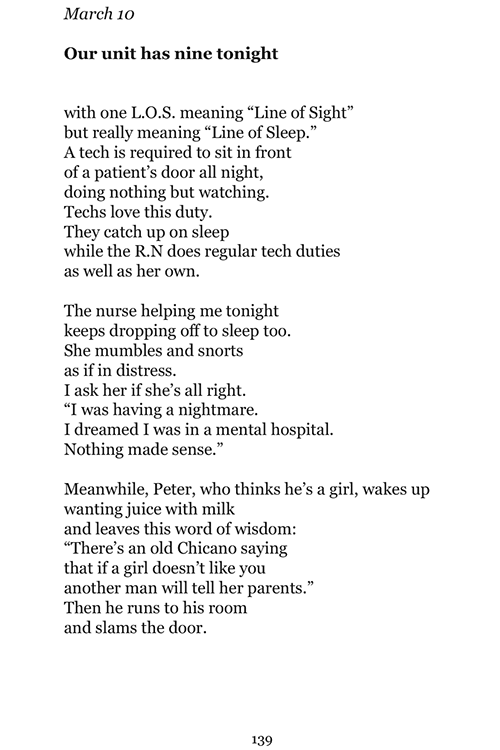
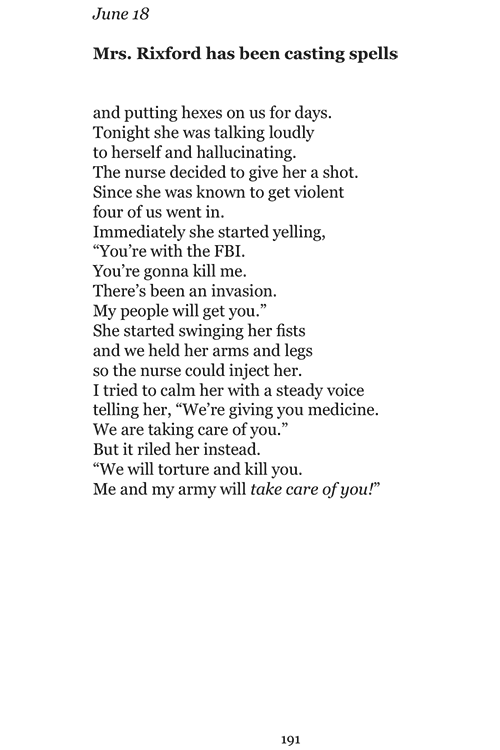
And check out what people are saying about Left Hand Dharma: New and Selected Poems:
Belinda Subraman does not hold back. Her poetry is fierce, tactile, lucid, and metaphysical, exploring life and death relentlessly, all the while recording both the suffering and the joy that is intrinsic to nature. Her poetry is compassionate, its nakedness our lesson and reflection. In Left Hand Dharma, Subraman embraces the phenomenological realm and assails inequity without shame. She lets us know when beauty is pierced by indifference or blatant cruelty. Left Hand Dharma unleashes upon the reader energy conjured by art and meditation. These poems are native to an inspired and tireless worker, they are the revelations of a traveller. They mark a learned path, a way we must go to find out. We have no choice but to follow.
—Michael Rothenberg, author of Drawing The Shade and Wake Up and Dream
Belinda Subraman cautions that “nothing can be said that is news,” and she is correct. The mysteries of birth and life, sex and death, joy, deprivation, the sacred and the profane, have been with us always. The trick lies in coming to these things with the grace of unguarded honesty and the courage to tell what one knows. In another life, Subraman would maybe be a shaman or a sage, tucked away in a cave, reading the future through bones scattered around a communal fire. She understands so damned much. This collection is a victory, a celebration of a career well-spent chasing the word across distant lands and the chasm between human lives. It is a wellspring of blest water. Prepare yourself and drink.
—Jeff Weddle, Eudora Welty Prize winning author of Bohemian New Orleans: The Story of the Outsider and Loujon Press
Belinda Subraman ponders the hard questions: honesty, physical autonomy, personal choice, spiritual practice versus dogmatic religions, geo-politics. Her poems also deftly and subtly describe the impact poverty, mental illness, physical infirmities, and aging have on individual lives. Subraman’s scope is broad enough to use physics to interrogate the impact of age on a woman’s place in a world of predatory and unkind forces. Yet her voice is intimate enough to draw a clear and compelling image of that North Carolina country girl growing up fast as a young adult in India, Germany, and travels elsewhere, to finally find her home in the US/Mexico borderlands. Her poems are a delight to read.
—Donna Snyder, author of The Tongue Has Its Secrets and coordinator of the Tumblewords Project
Belinda Subraman’s Left Hand Dharma reminds us that poetry is not only found in life’s daily routines, such as the grinding repetition of work, but also in existences that turn into “watercolors” of constant discovery. This omnibus also urges us to pay attention to the “now” before we arrive “already gone” into oblivions. In the end, Subraman’s first-rate work attests to poetry’s power to capture and transcend the ordinary world, and that’s a trip worth taking.
—Lawrence Welsh, author of Begging for Vultures: New and Selected Poems, 1994-2009
Belinda’s life long dedication to the arts and gentle spirit infuse both her work and her arts community. She is an important voice: quiet, sensitive, compassionate—a voice needed in every time, but especially now.
—Su Zi, editor/publisher of Red Mare
In her opening poem, “Buckling the Bible Belt,” Belinda Subraman pledges allegiance to her hillbilly past but goes on to quote Melville, “Silence is only the voice of God.” She takes the reader through incarnations of this holy silence and its often dark and damaged place in the world. “A Drunk Holy Man teaches Humility” and:
We celebrate life in the cemetery.
We eat with the dying.
We laugh with the dying.
We are the dying.yet her poems are vividly alive and pull us from the silence.
In “Crazy Like a Poet” the speaker tells us:with or without drugs
I go on like Shakespeare
writing dialog
for a nest of fairiesunder haloed mimosa trees.
Subraman does much more than create fairy dialogue. Her poems stand as shrines to the body and spirit calling out to memory: as a woodpecker tree or as the scent of polka dots her grandmother wore, or as:
Time is God passing through me
[…]
where a memory blurred into everything
becomes a light that blinds us into one
[…]
beyond orgasm and beliefs.This collection reads backwards to earlier poems where we see the promise that led to her recent work. The most poignant, inspired by her position as a nurse from the chapbook: Late Night in the Psyche Ward, and earlier ones from the chapbook Notes of a Human Warehouse Engineer about her job as a CNA in an El Paso, Texas nursing home. Her poet’s eye and layered compassion for the patients allow the reader into rooms where the mirror reveals the tragedy of aging and dementia. I realize her loneliness, she writes in “Gloria wants to call the police,” while one resident sings:
My heart is so filled with love,
I could die.But I see Subraman’s work echoing from “Mrs. Estrada is 98”:
This lady will not slip away quietly,
lay down her ghost and leave us.
She will be found grasping the bed rails
trying to get up to live.Left Hand Dharma is an evocative body of work by a uncommon poet, a compassionate observer and participant who hears the silence and answers.
—Anne Elezabeth Pluto, author of Benign Protection and Lubbock Electric
Buy it on Bookshop.org or Amazon.com
